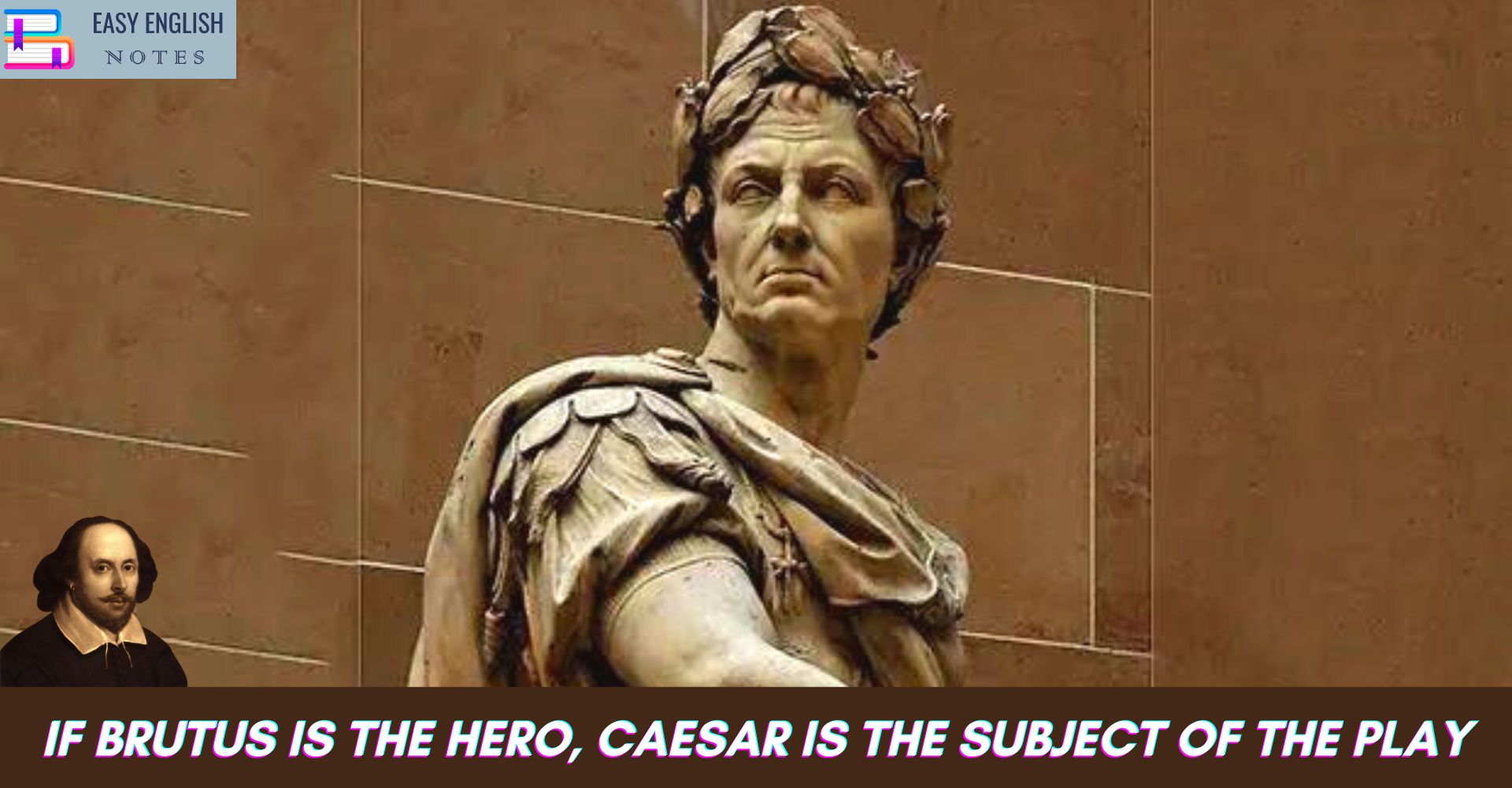We have positive proofs that Shakespeare understood Caesar thoroughly as “the noblest man that ever lived in the tide of the times” in his other plays. But in Julius Caesar consideration of dramatic necessity demanded that he should stress and touch upon the fringe and outskirts of Caesar’s life in the last month of his eventful career. Shakespeare was fully aware of the great- ness of this myriad-minded personality of the historical Caesar – “the fore- most man of all the world.” Why does the dramatist then present this unfavourable picture of Caesar? In the first place for dramatic reasons it was necessary in the first part of the play to lend some appearance of justification for the action of the conspirators. If Caesar were presented in his true great- ness, this murder would be too cold-blooded and the conspirators, heartless butchers. Considerations of dramatic effect led him to present a portrayal of Brutus and his conspirators, which is not warranted by history. It was, there- fore, necessary to keep Caesar in the background and to present that view of him which gave a reason for the conspiracy.
Also Read :
- Compare Hamlet with Macbeth, Othello and other Tragedies
- A Short Note On The Use Of Imagery In Shakespeare’s Sonnets
- Prologue to Canterbury Tales – (Short Ques & Ans)
But the transcendent power of Caesar in fashioning the world at a time when Republicanism was fast decaying became soon evident after his murder. “It is the spirit of Caesar which is the dominant power of the tragedy even from the very beginning. The first two scenes of the first Act show the popular craze for and worship of Caesar. In the Senate, Caesar is a great power to be reckoned with. It is true that although in the external working out of the motives of the plot Brutus, Cassius and Antony all play more conspicuous parts than the Dictator, yet it is the Dictator who overshadows them all with the majesty of a presence unseen but not unfelt. Caesar is “the inner, inspiring cause of the whole drama of the later scenes no less than of the earlier – for death really serves to intensify his power and he is alone indispensable to it.” Though the body of Caesar was killed, Caesarism continued to live in the person of Octavius after the death of the conspirators. Caesarism is the main pivot on which the whole play turns. Every element of the action springs from the central personality of the Dictator. “Shakespeare takes pains to show how great he was and how great he still is in the minds of men. The play opens with his triumph over Pompey. Brutus loves him, while he hates Caesar’s idea of Empire…. Cassius, Casca, while they carry him down, exalt his image in our eyes. When they slay him, they are like men who have murdered a world. Even the starry powers in Shakespeare’s imagination, emphasize his greatness. The whole heaven, when Caesar comes to die, is racked with storm, a lion roams through the streets, the dead rise from the graves. And when he is dead, all his vanity and folly are forgotten instantly. Rome rises to drive out the assassins. His spirit broods over the rest of the play in executive power. It is Caesar who wins the battle of Philippi, who plants the sword in the hearts of Cassius and Brutus. The theory of government because of which he died, defeats the theory Brutus held; the world that he initiated disperses to the winds the old world that Brutus in vain tried to reanimate. Caesar is the lord of the play; Brutus is in the second place.”
It is, therefore, true that the whole tragedy is wrought round Caesar – “Caesar living” (up to the beginning of Act III) and “Caesar dead”; and the latter is more powerful than the former.
PLEASE HELP ME TO REACH 1000 SUBSCRIBER ON MY COOKING YT CHANNEL (CLICK HERE)











